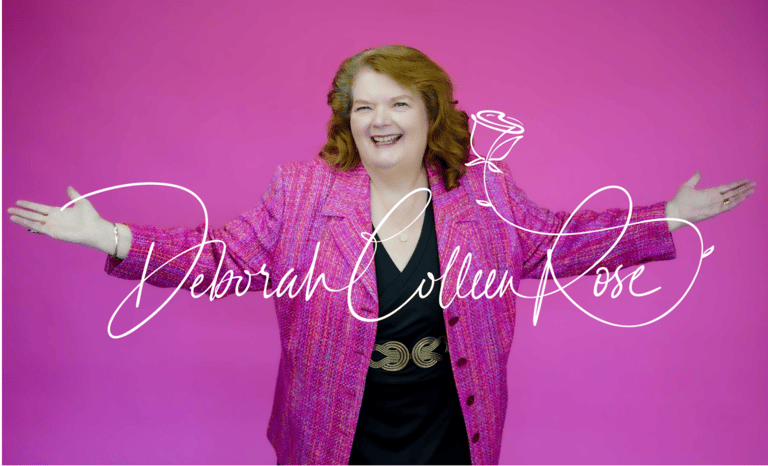“The Grace I Was Given: A Reflection on Truth, Race, and What We’ve Forgotten”
RELATIONSHIPSSPIRITUAL GROWTH
Deborah Colleen Rose
6/3/20253 min read
Lately, I’ve been sitting in a space most people avoid—a quiet, uncomfortable reckoning. The kind where you don’t just revisit your past, you relive it with new eyes. It’s not the sweet sepia-toned remembering. It’s raw. It’s bitter. It’s the kind of truth that has teeth.
I’ve been wrestling with the long shadow of my relationship with my mother. Some truths have shown up uninvited—unapologetically cruel and yet unavoidably real. Truths I had always suspected, tucked deep in that intuitive place inside me I’ve tried to hush for decades. Things I had hoped would shift with age, mellow with time. But instead of softening, they’ve calcified.
And yet, in the ache of that grief, memory opened its own side door and let in something brighter—something sacred.
The first time I was ever truly seen… not for what I could do, or how I could behave, but for who I was—deep-down-who-I-am—was by a Black woman in my neighborhood. She told me I was good. Worth something. That simple recognition cracked something open in me that had been closed tight for far too long.
From that day forward, I realized where I felt safe. Where I felt human. It wasn’t in my own home. It was in the forbidden neighborhood of the Black families who lived around me. The adults there didn’t just tolerate me—they protected me. I breathed easier when I was with them. I felt more seen, more human, more allowed to exist. They touched my with their kindness.
My first real friend—heart-level, soul-sister kind of friend—was a Black girl in third grade. She didn’t look at me like I was broken or weird. She looked at me like I was a person. And through her eyes, I could finally see that maybe I was. And we stood for each other.
Years later, when my husband died, I found myself weeping in my bail bond office—held in the arms of a Black woman whose husband I had just put in jail. Yes, you read that right. She wrapped me in grace when she had every right to slam her fist in my face. That kind of radical compassion? That’s holy ground. That’s what taught me the meaning of grace.
Over and over again, these moments weren’t just kindnesses. They were life rafts. Gifts. A form of sacred generosity that didn’t ask for anything in return. And many of these people had far less than I did in material terms. But when it came to love? To decency? To dignity and heart? They were millionaires.
So you’ll forgive me if I look around this “woke” world and feel a little sick. We’re supposed to be better now. We’ve had the conversations. The hashtags. The statements. The committees. But under the surface? That same old rot remains.
We’re not just talking about uncomfortable thoughts here. We’re talking about hatred. Hatred for people based solely on their skin. Hatred for people we don’t understand. Hatred for people for the WAY THEY LOOK! Hatred baked into policy, into power structures, into Sunday dinners and private conversations and voting booths.
And I’m supposed to be okay with that? I’m supposed to play nice, smile sweetly, and look the other way? Not a chance.
We don’t have to be best friends with everyone. But we do have a responsibility to treat people like human beings. That’s not a radical idea. That’s the foundation this country claimed to be built on:
To establish justice.
To insure domestic tranquility.
To provide for the common defense.
To promote the general welfare.
To secure the blessings of liberty—not just for some—but for all.
We can’t keep quoting those words and ignoring the blood in the mortar.
And if we claim any kind of spiritual belief at all—Christian, Muslim, Jewish, Buddhist, or "just trying to be a good person"—then we damn well better start acting like it. Because no god I believe in endorses cruelty, indifference, or hate.
This isn’t about politics. This is about people. Souls. Children. Elderly. Neighbors. Strangers. Me. You.
I thought things would make more sense as I got older. I thought wisdom would feel like warm tea on a cold day. But lately, it feels more like fire in my chest.
Because if we don’t stand up and speak out, then we’re just passing down a more polished version of the same disease. And I’m not willing to let that be my legacy.
I will honor the grace that was shown to me. I will speak the truth, even when it stings. And I will hold up the mirror—not to shame—but to wake us the hell up.
Because real grace stands its ground in the face of injustice.
Real love grabs your face, looks you dead in the eyes, and demands better.
And real justice doesn’t whisper—it roars the truth and wrecks the furniture if it has to.
It starts the moment we stop pretending this is someone else’s problem.
It starts when we rip the blindfold off and say,
“Not on my watch.”
